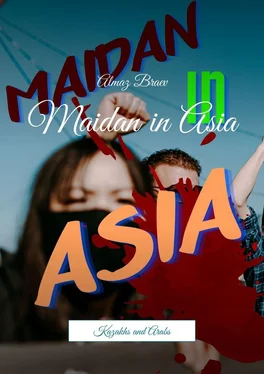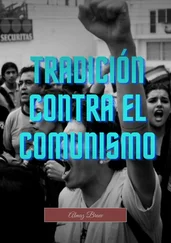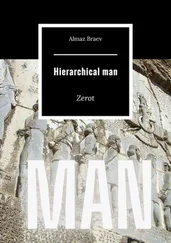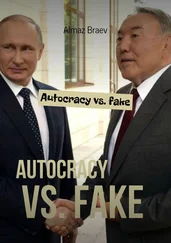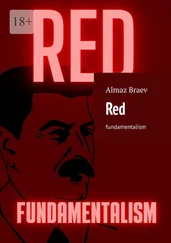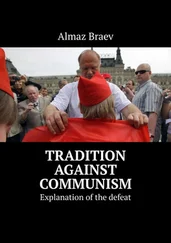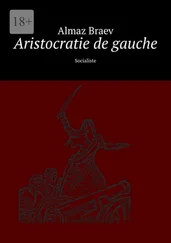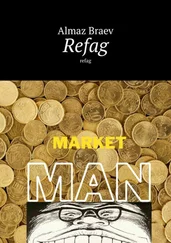Maidan in Asia
Kazakhs and Arabs
Almaz Braev
© Almaz Braev, 2022
ISBN 978-5-0056-8309-0
Created with Ridero smart publishing system
Why is there no orange revolution in Russia and Kazakhstan, or at least no excitement? Many people have asked this question.
The Arabs had revolutions. There have been several coups in Kyrgyzstan. There are several revolutions in Ukraine. But in Russia, Kazakhstan does not. Autocrat Nazarbayev ruled the state the most after the collapse of the USSR. Few people noticed that Russia and Kazakhstan used to be part of the Golden Horde. And what kind of democracy can there be in the Horde?
That was the simplest answer. It’s the Horde! «You don’t have the spirit. But we are great!» – So concluded the Ukrainian poetess in the famous «We will never be brothers» regarding Russian conservatism.
And in January 2022, unrest occurred in Kazakhstan. The performance began in the constantly restless west for the Kazakhs. Officials have raised prices for liquefied natural gas. And it caused outrage among the people. Although, they say that the price of gas is just a trigger of accumulated Kazakh problems during the permanent rule of the same ruler.
In the Maghreb, the Arabs had exactly the same situation. People are tired of the permanent rule of local dictators. Ben Ali, Gaddafi, Mubarak, Boumediene, Assad, and so on. Mubarak ruled for thirty years, Gaddafi ruled for forty years. The Assad clan rules Syria almost indefinitely. The same problem is everywhere in Asia – nepotism, and tribalism.
How do the Kazakhs differ from the Arabs of the Maghreb? And why were they ten years behind the Arabs? This book gives the answer. What are the Kazakhs similar to the Arabs and what is the difference?
Don’t trust the nomads. On the example of the Arab Spring
«Privilege is the greatest enemy of law.»
Maria von Ebner-Eschenbach
Since 2010, the Arab world has been gripped by the "Arab Spring" – a series of anti-government protests, uprisings, armed uprisings. All Arab countries have moved to one degree or another. Why are the Arabs themselves, and not Iranians or Turks or even Azerbaijanis?
Because the Maghreb countries are located closer to Europe.
If you don't look at the map, you can see that the Mediterranean Sea separates the Arabs and Europe. Indeed, the Mediterranean Sea and nothing else. But isn't Turkey and Europe separated by some narrow straits of the Bosporus and the Dardanelles? Why did the Turks behave quietly when the Arabs were rioting in their countries? Maybe someone, some prophet, appealed to the Arabs with appeals? Even if George Soros had changed into an Arab toga at that time and tied a kufiya on his head, no one would have looked in the direction of such a strange "Arab". Besides, Soros is not a speaker, but a financier. He is the patron – in the interpretation of the liberals, of his activities. In fact, the sponsor of orange coups around the world.
But even this monster of orangeism was powerless. His money has nothing to do with it. To create the conditions of the Arab Spring, he would need decades of special training. The modest possibilities of a short human life would not allow Soros to even dream that the Arabs were his disciples.
However, what happened.
And the Arabs have strengthened the world camp of democracy with their speeches. At least, they just ideologically contributed to this stereotype: all autocracies will not be saved from democracy. All dictators are waiting for an inglorious end, like the massacre of Libyan opposition fighters over Muammar Gaddafi. The Arab Spring has strengthened the forces of the Orangists all over the world. Following the Arabs, Venezuela, Ukraine, and Cuba became agitated. The Arabs especially strongly strengthened the forces of the Ukrainian nationalists. Here in Ukraine, Soros and other bankers, close by blood, had a decent base for a coup. Here Soros would not even need to change into Ukrainian embroidery. His foundations have supported the right people "in the name of democracy" for many years.
But where is democracy, and where are the Arabs!
Yes, indeed.
The Arabs, even after a series of modernizations, where the monarchies themselves carried out industrialization and Cultural Revolution in the 20s and 30s of the 20th century, did not stop there. The Arabs were impressed by Abdel Nasser's anti-colonial revolution in Egypt. The Cultural Revolution and enlightenment contributed to the performance of Arab officers. It was the people who carried out coups. The Arab officers did it. In fact, all coups and elite perestroika are anti-feudal and anti-colonial actions. European colonialists controlled the Arabs through the feudal elite. After the collapse of the British, French and Turkish empires, the Europeans cut the borders of the Arabs according to the ruler. Stop!
So there were no formal borders between the Arab feudal states?
Naturally. All these states appeared on the map with the collapse of colonial empires. And before the collapse, historical tribal lands existed. But it was the informal knowledge of feudal elites about hereditary property. Within the empire, regions, one might say satrapies, were preserved. But the puppet monarchs ruled there. Therefore, Arab officers, many of them studied at military academies in the West, asked themselves the question: "Why did we study? What were we trained for?" They were trained for the colonial administration as Arab urbanization progressed. But they went even further. They declared independence.
To somehow distinguish the fate of the Arabs from the Turks and Iranians, you need to understand: since 2010, the chain reaction of Arab coups is associated with the general psychology of Sunni nomads.
The sudden Arab epiphany is associated with the processes of urbanization and Arab socialism.
The Arab movement "for democracy" is associated with the reforms of the Socialist officers. The Arab officers looked at the USSR and repeated as best they could. "As they could" because tribal tribalism was not outlived, tribal tribalism is a very tenacious thing. Tribal tribalism and the informal influence of the feudal elite to them need to add a strong factor of Muslim radicalism. Muslims do not need the godless communism of Lenin-Stalin. Muslims have their own religious socialism. Therefore, the officers could not proclaim the "dictatorship of the proletariat." They wouldn't be understood. Another socialist, Hitler, was very popular in the Arab world. It harmonizes with the "role of the individual in history" under the guise of mahdi is, in fact, banal chiefdom. Therefore, Gaddafi could not build anything except his own Jamahiriya, for example. Nasser was distinguished by his oratory. But this did not save him from the Muslim Brotherhood.
So. The monarchs sent the children of Bedouin nomads to study military affairs. They learned and overthrew the monarchs. All Arab history from the late 50s of the 20th century to 2010 is the rule of the military. Or civil administrations of the Western type. But Arab democracy is a fiction. Just a showcase. Officers and clerics stood behind the decorative presidents. The best manager for all former nomads is the autocrat leader. And how he calls himself, maybe a president by the Western standard, maybe a prophet, so that it is clear to Muslims -this is his personal business. The most important thing is that leadership and dictatorship do not disappear anywhere, but return in a new form and with a new name. That's why the most conservative in this world are nomads. And in 2010, it was the nomads who rebelled.
Is it time for nomads?
Maybe. But when nomads perform, never look for democracy.
Читать дальше
